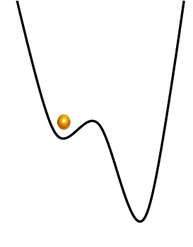|
New Republic has a great story on the Georgian (not the state, the Republic Of) War on Drugs. Subutex, a methadone replacement aimed at weaning heroin addicts off of needle drugs, became a less regulated and more problematic issue than the one it attempted to replace. Not only is this a case study in drug policy, but provides the opportunity for the tour de force line: Russian addicts pioneered the use of krokodil, and from there, the devil went down to Georgia.  (Krokodil, chemical name desomorphine, is the cocktail of toilet cleaner and codeine notorious for its life expectancy of less than three years after a junkie's first use, and another story of desperation in itself. ) So what is a post-Soviet country to do? Enact incredibly intrusive drug reforms. And they worked! Georgian police are legally allowed to stop any person on the street and force them to pee in a cup. Prison enrollment tripled after the enaction of these laws in 2004 (from ~80,000 to ~250,000). Nearly one in every 20 men above the age of 18 was stopped every year in the Republic during this period, of which less than a third passed dirty urine. The number of Subutex addicts in the Republic of Georgia is now effectively zero. And yet in the meantime, The United State of Georgia operates a prison program with a slightly smaller number of state inmates than existed at the peak in the Republic (210,000 versus 250,000), with a total cost of around $1bn per year. The nominal GDP of the Republic of Georgia is $14bn. The State is twice as large in population, twice as large in area, with a gdp of $400bn. So what can we infer from this? Drug reform and its consequences may be something like a multiple-equilibrium system with hysteresis. A central idea behind hysteresis is that there exist multiple states of a system which are stable at the same time, meaning trying to get away from them is difficult. Eventually, one will become unstable, and the system will move from it to the other state. A convenient way of thinking about this is a ball which lies in a system with two local minima. Both are stable in that small pushes on the ball keep it where it is. But if we increase, say, the wind blowing from left to right, eventually the wind will blow the ball into the rightmost well. Then if we bring the wind slowly back down to where it was before, the ball won't return to the original state. Hysteresis generally refers to the idea that a system has a memory. What could this say about the War on Drugs? Imagine that there are two equilibrium states:
We may never be able to escape this equilibrium addiction/incarceration problem until we reach a critical enforcement strength, far beyond what is Constitutionally permitted. What a problem! Comments are closed.
|
AuthorOceanographer, Mathemagician, and Interested Party Archives
March 2017
Categories
All
|
 RSS Feed
RSS Feed
